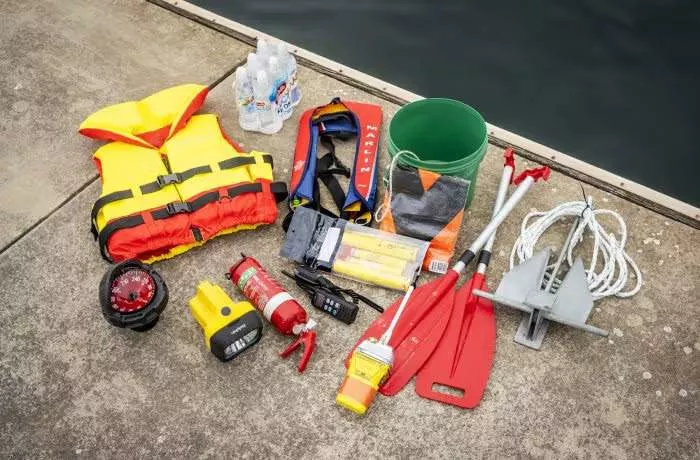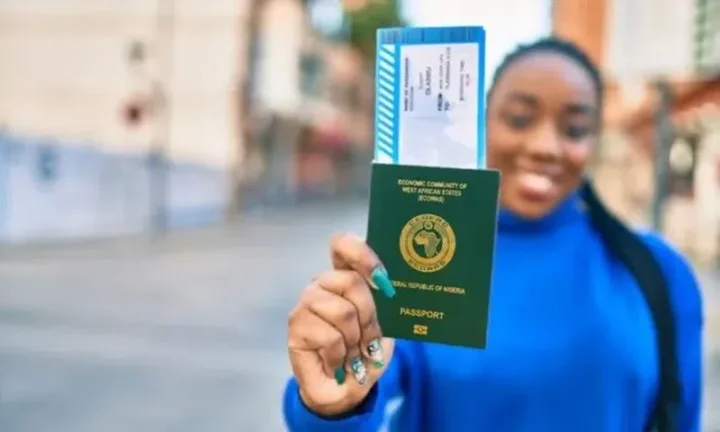![Safety tips for boat ride [Pinterest] Safety tips for boat ride [Pinterest]](https://static.netnaija.com/i/9z7o9B05N2r.webp)
Being prepared and aware of potential hazards can ensure you have a smooth and memorable boat ride experience, filled with laughter and happy memories.
A successful boat ride starts well before you even reach the water. This guide will equip you with essential safety tips, whether you're a seasoned boater or a first-time adventurer.
Here's what you need to do to ensure a safe and smooth journey:
1. Life jackets

This cannot be stressed enough. Life jackets are your lifeline on the water. Ensure everyone on board has a properly fitting life jacket. For children, choose a Coast Guard-approved life jacket specifically designed for their size and weight. It should be comfortable and allow for movement, but snug enough to stay afloat.
2. Weather forecast
Don't let a beautiful morning fool you. Always check the weather forecast before heading out. Look for potential storms, strong winds, or sudden changes in conditions. Understanding the forecast allows you to plan your trip accordingly and avoid getting caught off guard by bad weather.
3. Know your boat
If you're renting a boat, familiarise yourself with its operation and safety features. This includes learning about life rafts, fire extinguishers, and communication tools like a VHF radio. For private boat owners, ensure your vessel is properly maintained and all safety equipment is in good working order.
4. Float plan
Let someone onshore know your plans. File a float plan that includes your intended route, estimated return time, and the number of people on board. This information is invaluable in case of emergencies.
5. Safety gear essentials
Pack a basic first-aid kit, fire extinguisher, and flares.

These items might seem insignificant, but in the event of an accident or sudden situation, they can make a world of difference.
Safety on the water
Now that you're prepared, here are some safety practices to follow once you're on the water:
6. Safe boating practices
Always adhere to safe boating regulations. Follow designated speed limits and maintain a safe distance from other boats and swimmers.
7. Alcohol and drugs
Never operate under the influence. Just like driving, operating a boat under the influence of alcohol or drugs is incredibly dangerous. It can impair your judgment, reaction time, and coordination, significantly increasing the risk of accidents.
8. Sun protection
A day on the water means exposure to the sun. Pack plenty of sunscreen with an SPF of 30 or higher, reapply frequently, and wear protective clothing like hats and sunglasses.
9. Mind the capacity
Every boat has a designated maximum capacity. Never overload the vessel with more passengers or equipment than it can safely handle.
10. Beware of hazards
Be aware of potential hazards in the water like underwater structures, sudden changes in water depth, or strong currents. Familiarise yourself with the specific waterway and any potential dangers.
Keeping everyone safe
Here are some additional tips to ensure everyone has a comfortable and enjoyable experience:
Children require constant supervision around water. Invest in life jackets specifically designed for their size and ensure they wear them at all times while on the boat.
If you or someone onboard is prone to seasickness, consider taking preventative medication or using acupressure wristbands.
Boat travel comes with a responsibility to protect our waterways. Avoid throwing trash overboard and be mindful of marine life.
Boating should be a fun and enriching experience. By following these essential tips, you can ensure everyone onboard has a safe and enjoyable time.
Building your boating knowledge
Taking a safe boating course is an excellent way to gain valuable knowledge and practical skills. These courses cover topics like navigation, emergency procedures, and safe boat handling. Also, familiarising yourself with local boating regulations and waterway rules will enhance your confidence and ensure your trip adheres to safety guidelines.
















Comments